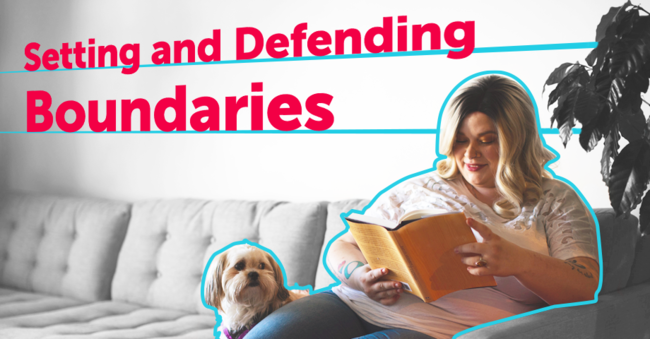
Quick Links
Resources
About MyFoodAllergyTeam
Powered By




There is an old saying: “Good fences make good neighbors.” Having healthy boundaries in relationships is important for everyone, especially for people with a chronic condition like food allergies. Setting and defending boundaries allows you to protect your physical and mental health and focus on feeling your best while living with allergies to certain foods.
Setting boundaries can be hard. Your friends and family may not be used to you saying no or establishing limits for when and how you are available to them. They may expect you to socialize the same way you did before you developed life-threatening reactions to certain foods. No matter what, you are entitled to establish the boundaries you need to maintain your emotional and physical wellbeing. Setting boundaries to take care of yourself does not make you mean or selfish – it helps you focus on what you need to do to protect yourself.
Here are a few tips for setting boundaries clearly and compassionately:
After setting boundaries, do not be surprised if you need to defend them. Some people will likely test your boundaries, especially when they are new. Expect some pushback and consider what a good response might be.
Here are some examples of boundary testing and possible responses:
After testing your boundaries a few times, most people will understand that they are well-defended and learn to respect them. If you have allies who understand the challenges of living with a food allergy, ask them to help you defend your limits with others. Remember, you don’t need to apologize for setting good boundaries that help you stay healthy, keep you safe, and feel your best while living with food allergies.
Here are some conversations from MyFoodAllergyTeam about setting and defending boundaries:
"I have had friends send me pictures of food from my favorite restaurant. I can’t eat there anymore. It makes me depressed. I feel like they are being mean to me for some reason."
"Other people just don’t understand the severity of allergies but also the isolation it causes. Social events are so food-orientated. It’s just so annoying!"
"There was a work-sponsored event coming up that involved a boat ride on a nearby river and, of course, a meal in the middle at someplace that had a limited menu that didn't sound safe. The river ride sounded fun, but I had to bow out."
Have you successfully set boundaries that help you manage food allergies?
What tips would you recommend to help set healthy limits with others?
Share in the comments below or directly on MyFoodAllergyTeam.
Sign up for free!
Become a member to get even more




A MyFoodAllergyTeam Member
How right u are people that have no allergies dont know the meaning of the word and sometime made feel u are a hypochondriac